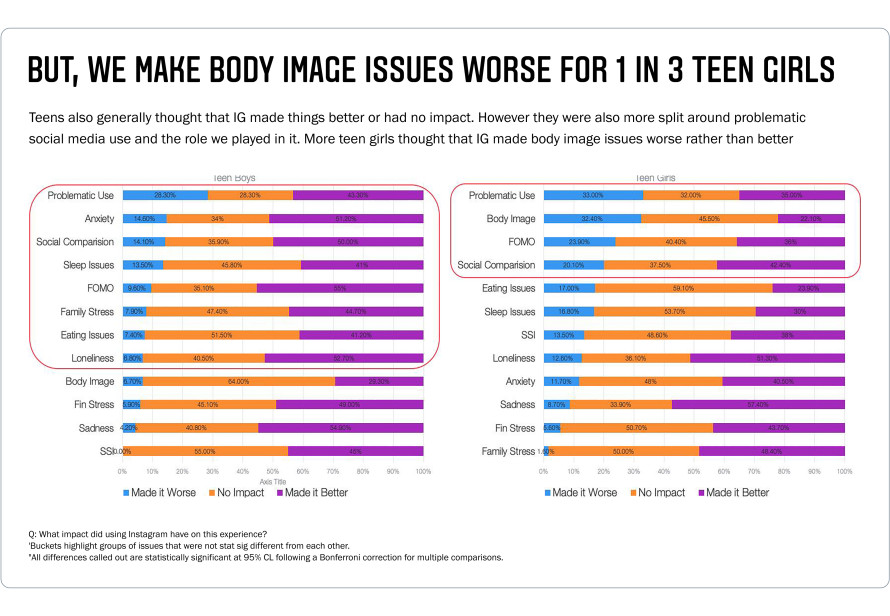Facebook has fired back nearly two weeks after The Wall Street Journal reported that Instagram made body image issues worse for one in three teenage girls according to Facebook’s own data. The salvo comes courtesy of Pratiti Raychoudhury, Vice President, Head of Research at Facebook. Raychoudhury’s post on Facebook’s Newsroom claims that The Wall Street Journal’s characterization of internal research is “not accurate” and blames it all on a poor interpretation of the data the WSJ has in its possession.
On September 14 The Wall Street Journal published a story to The Facebook Files, which is a series of stories based around an enormous cache of internal Facebook documents leaked to the newspaper. The September 14 piece focused on data that suggested Instagram had an extremely harmful effect on teenagers — particularly teenage girls. The WSJ claimed that Facebook was well aware of the harm its products had on teenagers and that the company “has made minimal efforts to address these issues and plays them down in public.”
Facebook has been evasive about the contents of the study cited by the WSJ. But Facebook’s global head of safety, Antigone Davis, is expected to appear before the Senate Commerce Subcommittee Thursday to answer for the claims made in the story and plans for a new “Instagram for kids”. Raychoudhury specifically cites that hearing as the reason for the post.
Raychoudhury ignores many of the issues raised in the WSJ piece, including that teens claimed they felt addicted to Instagram. Instead she focuses her energies on devaluing Facebook’s own research. Much of the WSJ’s most scathing claims, according to Raychoudhury, focus on a study that had just 40 partipants. That would be a paltry sample size by any measure — but particularly when you’re talking about a platform with over 1 billion users. The tiny study was “designed to inform internal conversations about teens’ most negative perceptions of Instagram,” Raychoudhury claims.

Raychoudhury also takes umbrage with the WSJ referring to an internal Facebook slide that claims “we make body images worse for 1 in 3 teenage girls”. Raychoudhury repeatedly notes that the body image problem was just one of 12 possible issues that Instagram could make worse for teenage girls. “Body image was the only area where teen girls who reported struggling with the issue said Instagram made it worse as compared to the other 11 areas,” she writes.
Unfortunately neither Facebook, Instagram, or Raychoudhury have released the actual data that she repeatedly cites in her response to the Journal’s reporting. Without seeing the data ourselves it’s extremely difficult to assess The Wall Street Journal’s or Raychoudhury’s intepretations of it. But, you know, this isn’t the first time we’ve heard about these problems.
https://www.theverge.com/2021/9/26/22695629/facebook-says-instagram-is-not-toxic-for-teens-despite-damning-wsj-report

